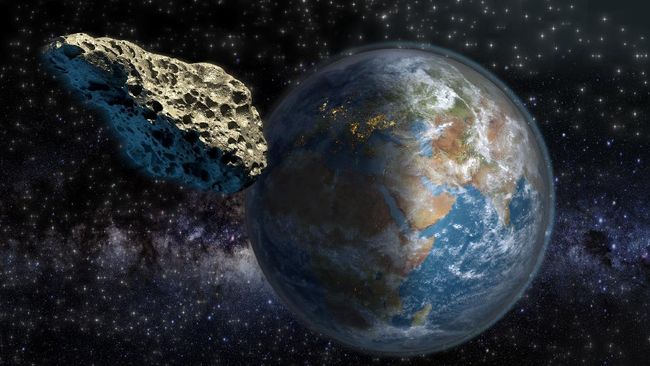Jakarta, CNN Indonesia —
Astronomers find asteroid with the fastest speed called 2021 PH27 in the solar system on August 13 last.
According to reports, this asteroid only takes 113 Earth days to orbit the Sun. This is the shortest orbital period for a celestial body in our solar system after Mercury, which takes only 88 days to orbit the Sun.
Asteroid 2021 PH27 was discovered using the Dark Energy Camera (DEC), a multifunctional instrument attached to the Victor M. Blanco telescope at the Cerro Tololo Inter-American Observatory in Chile.
2021 PH27 has an orbital trajectory that is more elliptical than Mercury, bringing it closer to the Sun—about 20 million kilometers at its closest point. While Mercury is at a distance of 47 million kilometers at its closest point to the Sun.
Asteroids are rocky celestial bodies scattered in outer space, but are too small to be called planets.
Researcher from the National Institute of Aeronautics and Space (LAPAN), Andi Pangerang, said that the 2021 PH27 asteroid was not included in the Potential Hazardous Object (PHO).
This is because the minimum orbital intersection distance (MOID) measured from Earth is 0.227 astronomical units, or in kilometers, it becomes 34 million kilometers. This value is greater than the minimum Earth MOID for PHO of 0.05 astronomical units or 7.5 million kilometers.
According to reports SpacedotcomAsteroid 2021 PH27 has a fairly hot temperature when it is at its closest point to the Sun, which is around 500 degrees Celsius. The temperature is hot enough to melt the iron plate.
Because it can be so close to the Sun, 2021 PH27 receives the greatest general relativity effect than any other celestial body in our solar system. This effect is like an unstable movement, and at some point it has the possibility to hit the Sun.
Astronomer at the Carnegie Institute of Science in Washington, DC, United States, Scott Sheppard, and his colleagues estimate that 2021 PH27 will be about 2 kilometers wide.
This asteroid probably came from the asteroid belt between Mars and Jupiter, which was blown out of its orbit due to gravitational interactions between the planets, as reported by the report. SciTechDaily.
(lnn/ayp)
– .


